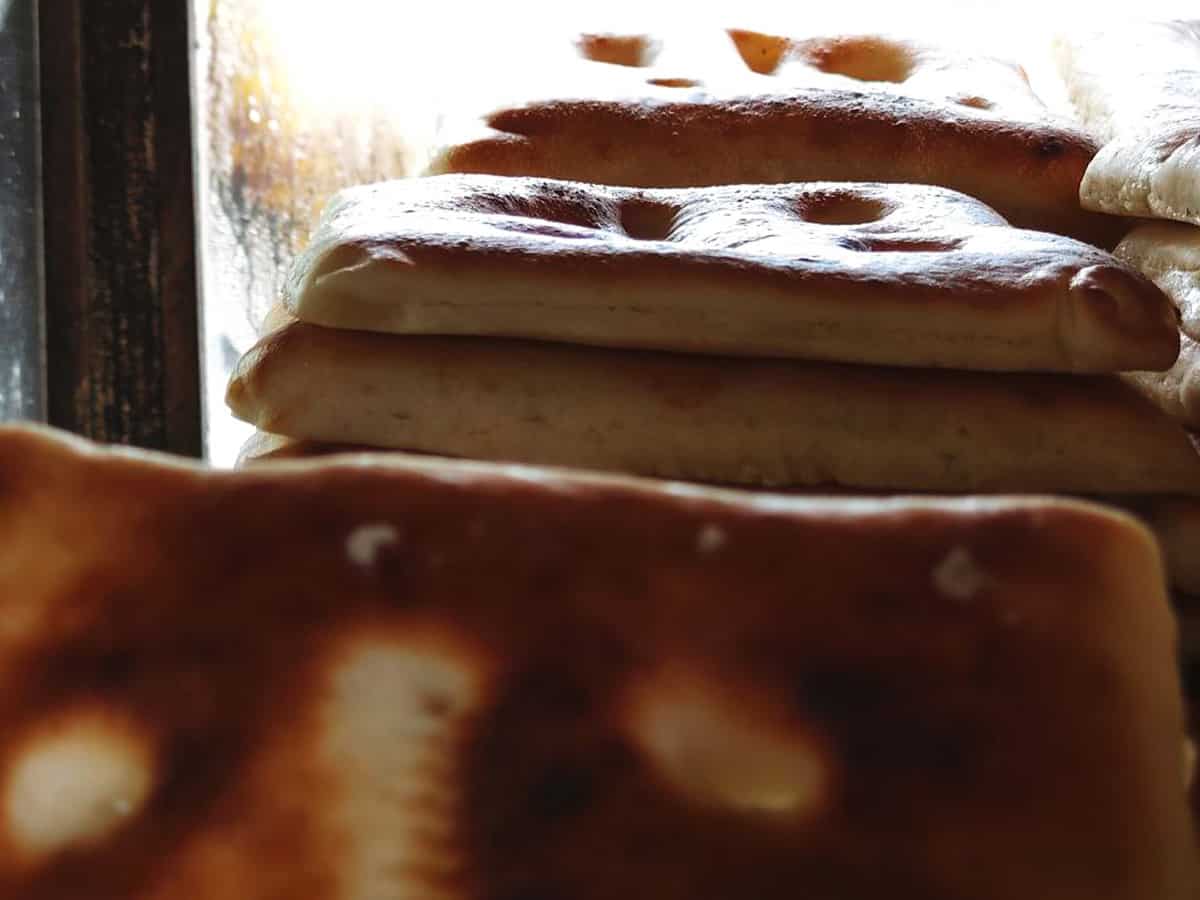
Hyderabad: Bakers in the city are full of business as many people are buying bread to prepare the Double ka Meetha. What sheer khurma is to Eid ul Fitr, the mouth-watering Double ka Meetha is synonymous with the Eid ul Adha festival.
Since long as a cultural practice maximum of families prepare Double ka Meetha sweet in their houses on Bakrid and offer it to the guest who visits to greet them on festival day and also hand over the meat of the sacrificial animal.
In front of all bakeries, one can see neatly arranged ‘meetha ka bread’ kept on tables and sold to customers. Long and deeply baked bread is used in preparing the Double ka Meetha bread on Eid ul Adha day in Muslim households in erstwhile Nizam state comprising parts of Telangana, Andhra Pradesh, and Maharashtra.
Ayub Khan, a bakery owner at Tallabkatta said that a day before the Eid ul Adha, he sells about 250 pieces of bread. “On regular days we sell 8 to 10 loaves of bread. During Eid ul Adha, we sell a large number. Irrespective of social status people buy it to prepare the sweet,” he told Siasat.com.
The price of the bread is a bit higher than the regular variety. It costs between Rs. 80 and Rs. 100. “Size of the meathaka bread is a bit higher as compared to the regular. Say there is a price difference of Rs. 30,” said Omer Khan, a bakery owner at Aliabad.
To cater to the huge demand the bakers start the preparatory works around two to three days before the festival day. “Preparation involves placing orders for firewood, maida flour, and other edibles,” said Zeeshan, a baker at Bahadurpura. People purchase between 2 to 5 pieces of bread to prepare the sweet dish.
A retired school teacher Shaista Begum explained there is no religious significance to the sweet anywhere and due to the customary practices, families still insist on preparing the delicacy on Eid day. “Over the years the tradition passed on from generation to generation and continues,” she said.
Nowadays some bakeries and individuals have started preparing the sweets in their kitchens and selling them to customers at Rs. 200 to Rs. 400 a kilogram. The sales are also encouraging. “It is ideal for gifting. Women want to prepare at home and there is satisfaction in the entire exercise,” Shaista Begum added.



